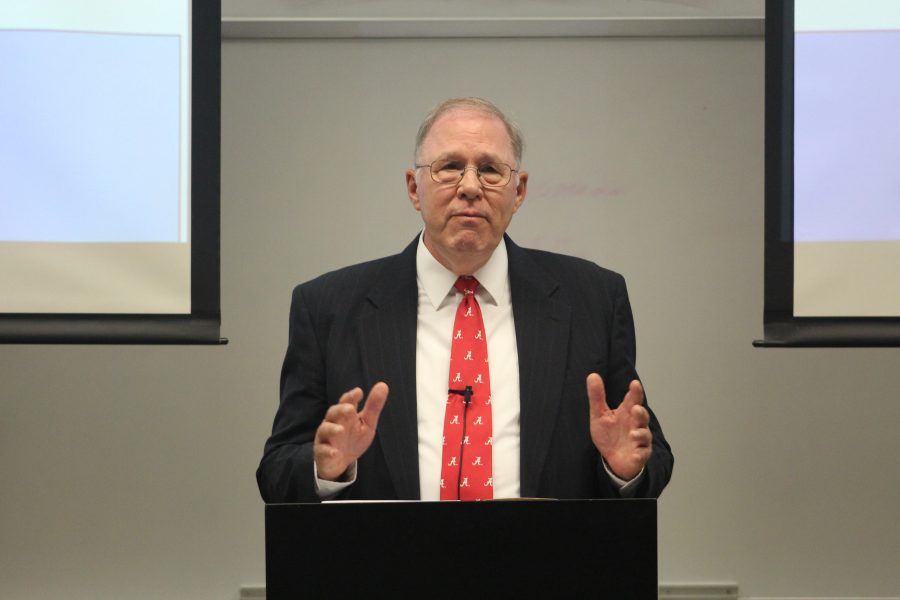Last night, Lawrence Kohl reflected on his 30-year professorship at The University of Alabama before his retirement in a lecture entitled, “On Life, History, and Teaching.” Kohl focused on what he has learned about life, history, and teaching in his 30 years at the University.
Kohl spoke of the value of history on a personal sense, noting that, “above all, history compels us to get outside of ourselves. It asks us to see the world from the vantage point of others, a trait that is the foundation of understanding and compassion.”
Kohl went on to discuss the reasons he believes the value of history is lost in the wider public. He first attributed this decline to chronological arrogance.
“We often feel quite superior to all those humans who preceded us,” he said. “We have a tendency to see the people of the past as if they were insignificant beings, hardly worth our attention, much less having anything to teach us.”
With the idea of chronological arrogance, Kohl finds that society is not only unjust to the people of the past, who can no longer defend themselves, but it cuts itself off from the past and actually makes history irrelevant.
Kohl also attributed the cultural devaluation of history to those within the field. He noted that many history professors focus far too often on fads within historical thought, rather than focus on teaching their students the facts of history.
“We as a profession also tend to see history too much as a profession,” he said. “We are too intent on imposing this professional understanding on others.”
Kohl also found fault in the focus on the economic side of history.
“Many have unconsciously succumbed to today’s obsession with economic values and have tried to justify their existence by making history a business,” he said.
He went on to extoll the value of teaching within professors, noting that, far too often, humanities departments value research and other clear markers of progress over teaching in a classroom. “Those who diminish the significance of teachers,” Kohl said. “Don’t know much about education or human nature.”
Kohl ended his lecture with an emphasis on the importance of valuing students.
“College is their rare time and, perhaps for many, the only time where they will have the opportunity to take honest stock of themselves, sort out their lives, and decide how to confront their future in a way that will be true to themselves and responsible to others,” he said.
Finally, Kohl took time to express his gratitude for his time at The University of Alabama.
“The true measure of a humanities education lies in the nature of the lives of the people who receive it,” he said. “Over the last 30 years of teaching at Alabama, my teaching has touched the lives of nearly 10,000 students. Because of this, teaching is, and always will be, an act of faith.”
One such student, Noah Caldwell, took three of Kohl’s classes and also attended last night’s lecture. He noted that Kohl had a profound impact on his time at the University.
“I am very grateful that I was able to experience Dr. Kohl and his lectures these past few years,” said Caldwell, a senior majoring in history and economics. “His sense of humor always drew me in, and you can tell that he has a real love for the subject.”









